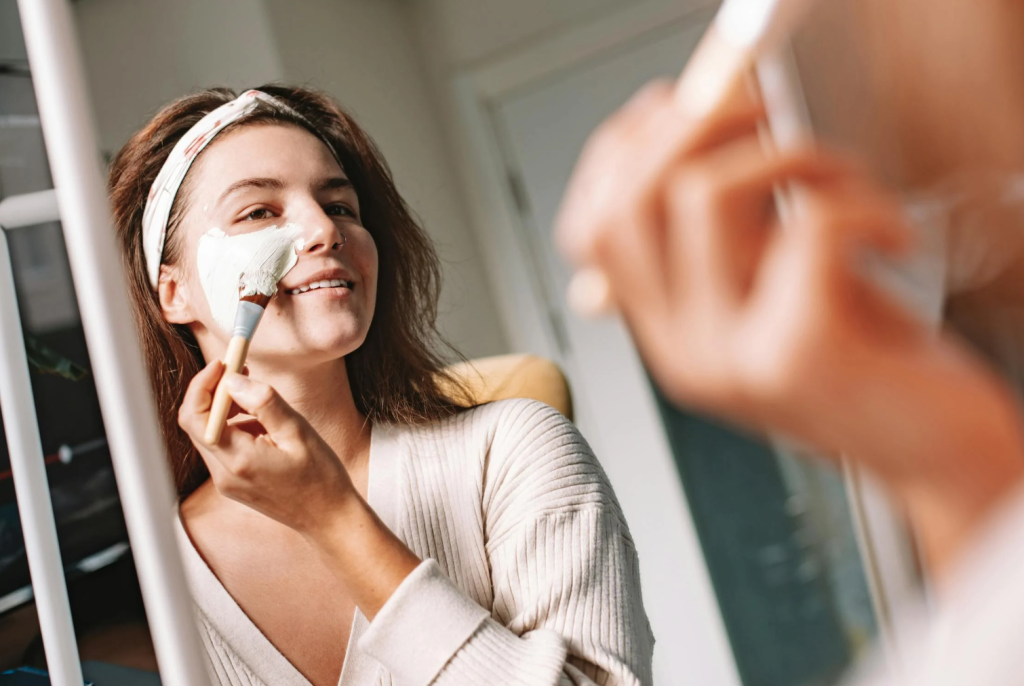Introduction
Have you ever wondered how some people always seem to have that enviable glow? It’s not just about genetics; a solid skincare routine can work wonders! In this article, we’ll delve into the nitty-gritty of skincare routines designed specifically for the morning and night, helping you achieve that radiant skin you’ve always wanted.
The Importance of a Skincare Routine
A consistent skincare routine is crucial for maintaining healthy skin. It not only helps to improve the appearance of your skin but also combats issues like dryness, acne, and signs of aging.
Benefits of Glowing Skin
Glowing skin isn’t just a beauty trend; it reflects good health. When your skin radiates vitality, it can boost your confidence and make you feel more attractive. Plus, glowing skin often indicates proper hydration and a balanced diet!
Morning Skincare Routine
Starting your day with a proper skincare routine sets the tone for the rest of the day. Here’s how to do it right.
Step 1: Cleansing
Begin with a gentle cleanser to remove any overnight buildup. It wakes up your skin and preps it for the following products.
Step 2: Toning
Toners help to balance your skin’s pH and can tighten pores. Look for alcohol-free options that hydrate rather than strip your skin.
Step 3: Moisturizing
Even if you have oily skin, don’t skip moisturizer! Choose a lightweight formula that hydrates without feeling heavy.
Step 4: Sunscreen
Never, ever skip sunscreen! Protecting your skin from harmful UV rays is crucial for preventing premature aging and maintaining that glow. Look for broad-spectrum SPF 30 or higher.
Night Skincare Routine
Your night routine is where the magic happens. While you sleep, your skin is in repair mode, so let’s give it some love.
Step 1: Cleansing
Double cleansing can be beneficial, especially if you wear makeup. Start with an oil-based cleanser, followed by a gentle foam or gel cleanser.
Step 2: Exfoliating
Exfoliation helps remove dead skin cells, allowing your skin to renew itself. Do this 2-3 times a week with a chemical exfoliant like AHAs or BHAs.
Step 3: Serums and Treatments
This is the time to apply targeted treatments. Whether it’s for acne, pigmentation, or wrinkles, serums can penetrate deeper into the skin.
Step 4: Moisturizing
Seal in all the goodness with a richer moisturizer or night cream. This helps your skin retain moisture while you sleep.

Common Ingredients for Glowing Skin
Understanding which ingredients can benefit your skin is essential.
Vitamin C
This powerhouse ingredient brightens the skin and evens out skin tone. Incorporating a vitamin C serum in the morning can amplify your glow.
Hyaluronic Acid
Known for its hydrating properties, hyaluronic acid can hold up to 1000 times its weight in water, making it a must-have for plump, glowing skin.
Tips for Maintaining Glowing Skin
It’s not just about the products; your lifestyle matters too!
Hydration and Diet
Drink plenty of water and consume a balanced diet rich in antioxidants, vitamins, and minerals. Foods like berries, nuts, and leafy greens can significantly impact your skin’s health.
Lifestyle Factors
Stress and lack of sleep can wreak havoc on your skin. Aim for 7-8 hours of sleep each night and find ways to manage stress, whether through exercise, meditation, or hobbies.
Conclusion
Achieving glowing skin is a combination of the right products and healthy lifestyle choices. By establishing a dedicated morning and night skincare routine, you’ll be well on your way to that radiant complexion. Remember, consistency is key!
FAQs
1. How long will it take to see results from my skincare routine?
Results vary, but you may start to see improvements in a few weeks with consistent care.
2. Can I use the same products in the morning and night?
While some products can be used at both times, it’s often best to tailor your routine to your skin’s needs.
3. What should I do if I have sensitive skin?
Choose gentle, fragrance-free products and consult a dermatologist for personalized recommendations.
4. Is sunscreen necessary on cloudy days?
Absolutely! UV rays can penetrate clouds, so daily sunscreen is essential.
5. How can I tell if a product is right for my skin type?
Patch testing new products on a small area of skin can help determine if they’re suitable for you. Always look for products formulated for your specific skin type.

